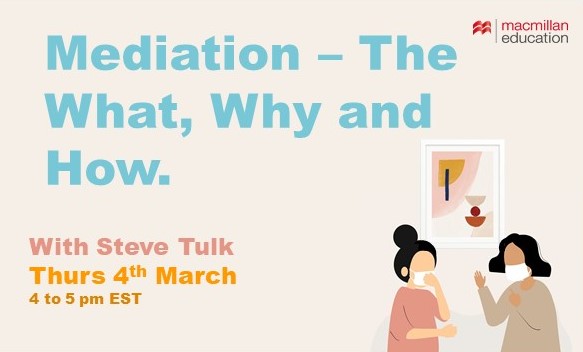
March 18th update: this webinar has been canceled. We hope to reschedule as a live event once it is safe to gather.
Please join us at 10 am EST on March 20th to celebrate the first day of spring and World Happiness Day with Patrice Palmer!
Happiness @ School
“Happy teachers will change the world”. Thích Nhất Hanh
Did you know that 50% of our happiness is determined by our genes, 10% by our environment but that 40% is determined by our actions or attitude? The science of positive psychology or human flourishing suggests hundreds of simple interventions or strategies (e.g. like writing in a gratitude journal) that we can apply daily to increase our happiness and well-being.
In this workshop, I will provide an overview of positive psychology and give concrete examples of some simple interventions that can be used with learners. Happiness is contagious! Participants will leave this workshop with an understanding of the fastest growing area of psychology, learn new interventions that are evidence-based leading to happier teachers, students and all school staff and leave with a list of simple actions that can lead to increased happiness, well-being and flourishing.
About Patrice
Patrice Palmer has more than 25 years as an ESL educator, trainer and facilitator. Her academic credentials include a Bachelor of Arts (York University); a Bachelor of Education in Adult Education and Master of Education (Brock University); Master of Arts (OISE of the University of Toronto). Patrice has several TESL (Teaching English as a Second Language) accreditations including OCELT certification. She also completed certificates in Positive Psychology and Positive Education at Wilfrid Laurier University and now teaches in the program. She is a certified Mindfulness Facilitator and Mental Fitness and Resiliency Trainer.
Patrice’s experience with professional burn-out in 2015 prompted her to reflect on her own lack of self-care and adopt positive psychology interventions which she happily shares. Patrice is the author of The Teacher Self-Care Manual: Simple Strategies for Stressed Teachers and a teacher’s resource for middle-school students entitled Ready, Set, GROW! which is filled with positive psychology interventions for young learners.
With the $10 workshop fee, you will also receive a digital copy of Patrice’s book The Teacher’s Self-Care Manual, published by Alphabet Publishing.
Click here to sign up.




